Naruyoshi Kikuchi: the interview
War, madness and Lupin III: the saxophonist and DCPRG leader tells all
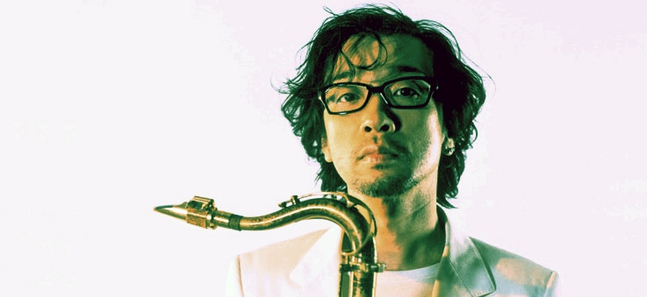
Posted: Fri Oct 05 2012
'Wars are big business – academics and experts can tell you that. I'm just speaking as a musician, but I think in some ways wars are necessary for humans. Yes, they're tragic, so we shouldn't wage them, but on the other hand if there's no war for a long time, you get people pulling out knives on the subway – what I think of as a kind of quiet civil war. People post inflammatory comments online, and it's not causing any physical injuries, but the effects linger in the mind. That's a kind of war too, a kind of terrorism, because it's anonymous…'
Naruyoshi Kikuchi doesn't really do short answers. It'll be another twenty minutes before I get to ask my next question, during which time the saxophonist discusses the nature of conflict, mental illness, his awkward relationship with the US, and the life, death and rebirth of his best-known act, Date Course Pentagon Royal Garden. Holding court at his office on the 9th floor of an apartment block in Shinjuku – the neighbourhood that he claims hardly ever to leave – he seems intent on making sure he doesn't miss anything.
This is the first English-language media interview Kikuchi has ever given, though I don't feel like I'm getting special treatment. Even his Q&As in Japanese magazines read more like extended monologues, the hapless writers having to insert their own parenthetical laughter in place of the questions they weren't able to ask. The man is a torrent of ideas; if you want a jazz metaphor, he's the bebop soloist who never seems to run out of puff.
At 49, Kikuchi is one of Japan's most famous jazz musicians. In addition to Date Course Pentagon Royal Garden – an 11-piece ensemble informed by '70s funk, Miles Davis, Afrobeat and club music – he also leads the Naruyoshi Kikuchi Dub Sextet and the tango-tinged Naruyoshi Kikuchi y Pepe Tormento Azucarar, who soundtracked this year's warmly received Lupin III: The Woman Called Fujiko Mine anime series. Add to that his solo work, DJ gigs and prolific output as an essayist and acerbic cultural commentator, and he has a reach that few of his peers can match.
Yet he lacks the overseas recognition of, say, Makoto Ozone or Hiromi Uehara – partly because he doesn't go abroad much. 'People always ask me, "You play jazz, so you must have been to New York, right? You must love America, right?" ' He's only been to the States once, to Chicago, and it didn't leave a favourable impression. 'I was only there for a few days, but it wasn't comfortable,' he says. 'All those huge buildings, the strong winds – I realised I liked Europe more … I'm not politically anti-American, I just still have the sense that America doesn't agree with me.'
Back in the day, he used to travel more. Kikuchi started playing with pianist Yosuke Yamashita's group in 1986, when he was still in his early twenties, and at one point joined them for a two-month tour of Europe. 'I wasn't officially a member, but I got invited to play at most of the gigs, which was pretty much the same thing,' he says. 'Since I started doing my own thing, I suddenly stopped being an "internationalist." The experiences I got then were priceless – it was a real eye-opener.'
The 1990s saw him get involved with groups including Yoshihide Otomo's Ground Zero, as well as taking a lead role in Spank Happy, an unorthodox pop trio formed with vocalist Midori Hara and keyboardist Shin Kono. But the decade ended badly. In 1998, Kikuchi was hospitalised for two months with a rare form of lymphadenitis (known, in a bizarre coincidence, as Kikuchi's disease), putting Spank Happy on a hiatus that became permanent when Hara left the group later that year. When he formed Date Course Pentagon Royal Garden in 1999, he was at the peak of what he describes as his 'most neurotic phase'.
It showed. The group's first album was released a week before 9/11, yet it effectively foreshadowed the events of the coming decade, US interventionism and all. Report from Iron Mountain took its title from the 1967 book by Leonard Lewin, a key text of military-industrial paranoia (later revealed as a literary hoax) that purported to be a leaked report from a secret government panel. In the original book, the fictional Special Study Group considers the prospects of lasting peace in the US, only to conclude that warfare was necessary to a stable society. Kikuchi – who was suffering from panic attacks at the time – had reached similar conclusions himself.
'Around 1999, the world was vaguely optimistic,' he recalls. 'Sure, lots of bad stuff had happened during the 20th century, but people were seized by this optimism that the 21st century would be better. I remember it well. I kind of felt the same myself, and then 9/11 exposed it as a lie… All the optimism was blown away, and I realised that war was necessary – or, at least, it was always going to happen.'
That's the kind of thinking that inspired Iron Mountain's opening track, 'Catch22', a chaotic stew of jazz fusion in which each member of the band is playing at a different tempo. 'I wanted to express, just through music, that we were in a state of war,' he says. 'You could hear the sound of bombs dropping in Vietnam in Jimi Hendrix's music, but that's not what I was going for. I used a completely different method: to take the chaos of war and express it on the dancefloor. That was "Catch22".'
Warfare aside, there was another clear influence on the band's early output: Miles Davis, specifically the trumpeter's electric period, as heard on albums like Bitches Brew (1970) and On The Corner (1972). Kikuchi has clearly heard the comparison a lot. 'The generous critics say I'm a successor to Electric Miles,' he says. 'The negative ones say I'm a copyist.' But it isn't the only reference he gets: he says some compare the group to Frank Zappa, John Zorn, Ornette Coleman's Prime Time.
A little personality goes a long way, too. 'Simply put, he was very different from me,' he says. 'Miles was a scary leader: all his players were frightened of him. I'm not scary at all.'
A decade on, he would revisit 'Catch22' with Date Course – now known as DCPRG, and featuring an almost completely new lineup of musicians following a split in 2007. A revamped version of the song opens this year's Second Report from Iron Mountain USA album, and it's every bit as discombobulating as the original, albeit for very different reasons. Kikuchi is rapping, for starters, joined by music critic pal Ootani Yosio and – most surprisingly – Tone Rion, a virtual singer created with the Vocaloid software that gave us Hatsune Miku. It's very rum indeed, although apparently the group's longstanding fans weren't particularly phased. 'Their reaction was like: "That's all right, isn't it?",' he says. 'I was thinking people would be nauseated or angry.'
Second Report… is released on Impulse! Records, the famous jazz imprint that once provided a home to John Coltrane, Charles Mingus and Sun Ra, but in recent years had existed solely as a CD reissue label. Even Kikuchi seems a little dubious about whether or not this constitutes A Big Deal, but the prospect of an overseas release (as-yet unfulfilled) set his conceptual ambitions into overdrive. The use of Vocaloid and guest rappers Simi Lab are, he says, partly a 'parody' of other Japanese acts who made more earnest attempts to conquer the States.
'Pink Lady, Dreams Come True, Hikaru Utada – when they were going to America, they all worked on their English pronunciation while trying to emphasise their Oriental-ness, like a kind of Japonism. But then they adopted this weighty, orthodox American style, so in the end they just produced these boring songs. As you'd expect, they didn't sell anything when they went there – again and again.'
Kikuchi's approach on Second Report seems to have been to subvert expectations rather than pander to them. 'When Americans heard it for the first time, they'd hear Japanese rap, then Vocaloid rap, but with the Impulse! label on the jacket,' he says. 'I thought that'd be interesting.'
DCPRG's return to the music scene was in itself a kind of ironic joke. Having disbanded the group in 2007, Kikuchi recalls being approached about opening for a Japan gig featuring many of the musicians who'd played in the original Electric Miles bands, led by bassist Michael Henderson. Tantalised by the prospect of seeing the likes of saxophonist Dave Liebman and guitarist Pete Cosey together on stage, he agreed to reunite his band for a one-off support slot. And then things began to go awry.
'It didn't suddenly go up in smoke,' he says of the proposed concert. 'It was more a case of this guy wasn't going to be able to make it, that guy wasn't going to be able to make it, so they were getting this guy instead. They were adding people who were total unknowns in Japan, all these young musicians – it was starting to look really dubious.' When the communications with Henderson ceased altogether, he decided to go ahead with the show anyway, leading a new lineup of DCPRG through a rain-drenched reunion gig at Hibiya Open-Air Concert Hall, the kind of 'legendary' affair that was probably more fun to read about afterwards than attend in person.
The group will be returning to the venue on October 8 for another round – with better weather this time, one hopes. It's the latest gig in what's been a busy month or so for Kikuchi: after playing the Blue Note Tokyo with his Dub Sextet in mid-September, last weekend he took Pepe Tormento Azucarar to the prestigious Sumida Triphony Hall, an 1,800-seat auditorium usually reserved for classical concerts. It was a major step up from the kind of venues the band usually performs in, but that's what you get when you start doing Lupin soundtracks.
'Lupin was very adult-orientated when it started, but it gradually turned into a children's cartoon,' he says, describing the thought that went into this year's Lupin III: The Woman Called Fujiko Mine series. 'The plan was to take it back to adult its roots for the 40th anniversary. They said "adult", but actually that ended up being "erotic".' As the 'feminine' answer to the 'macho' DCPRG, Pepe Tormento were a natural fit.
At the time of our interview, Kikuchi hasn't even seen the finished product, mind you. Unlike films, he explains, anime soundtracks get recorded in advance, meaning that he was working from concept sketches when he composed the music. But anyway, he's not much of an anime fan. 'I may put Vocaloid into my music as a sort of parody, but I don't have any interest in "Cool Japan" culture,' he says. 'I've never been to Akihabara: I spend all my time in Shinjuku.'
DCPRG Yaon 2012, October 8 at Hibiya Open-Air Concert Hall; Naruyoshi Kikuchi y Pepe Tormento Azucarar, October 26 at Motion Blue, Yokohama. 'Second Report from Iron Mountain USA' is out now on Impulse! Records/Universal
Tweets
- About Us |
- Work for Time Out |
- Send us info |
- Advertising |
- Mobile edition |
- Terms & Conditions |
- Privacy policy |
- Contact Us
Copyright © 2014 Time Out Tokyo










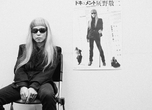
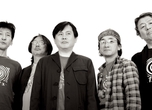
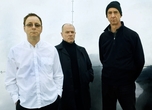
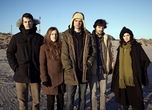
Add your comment